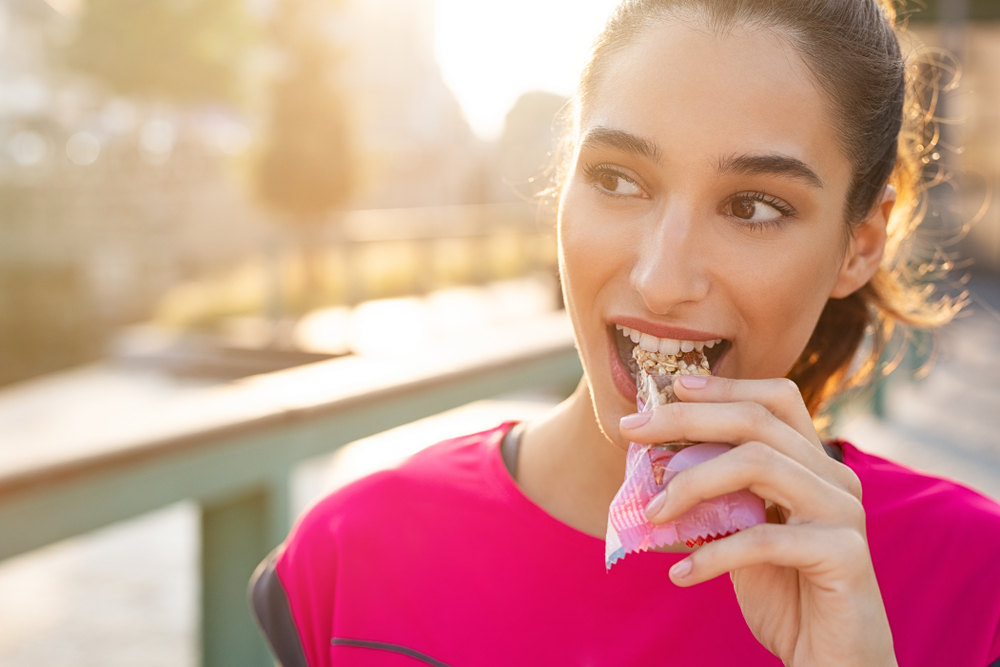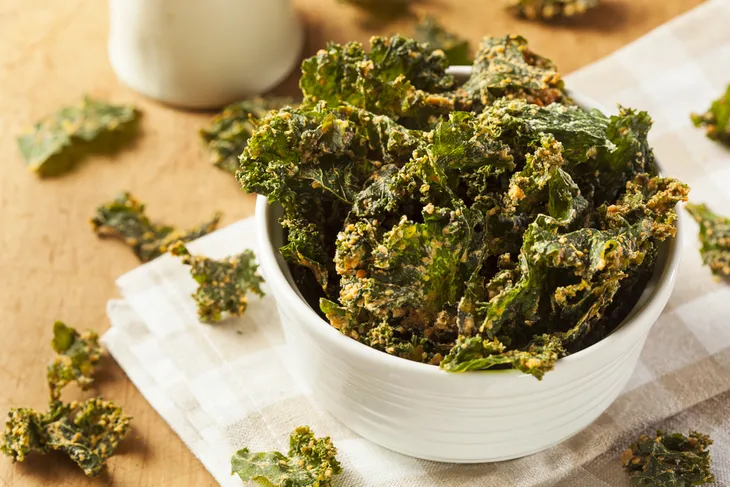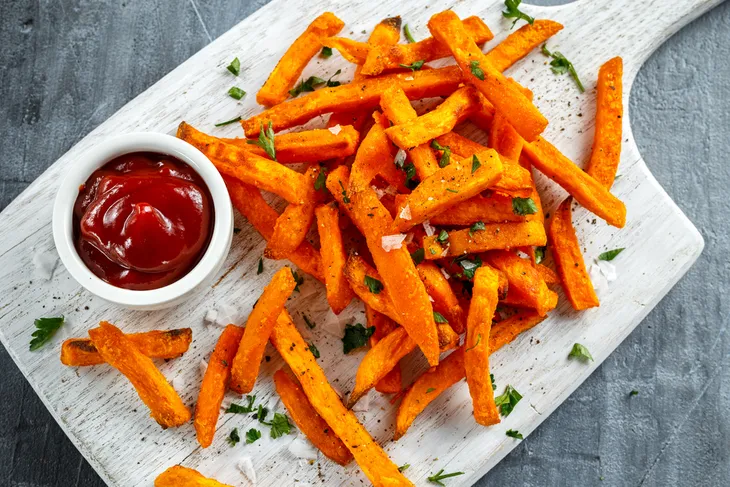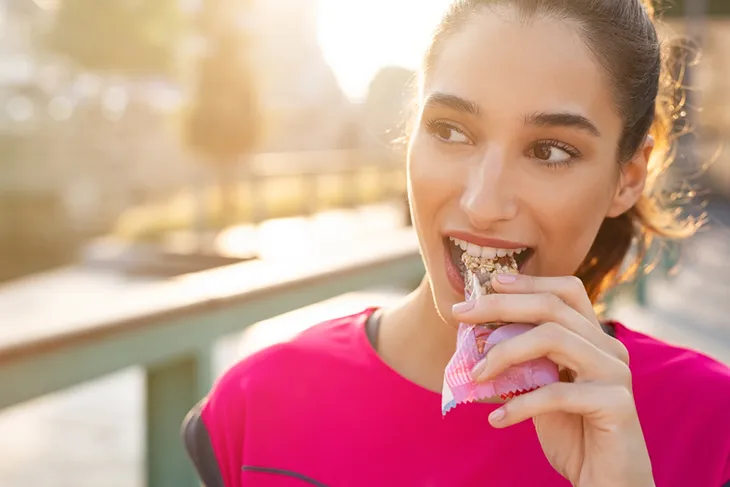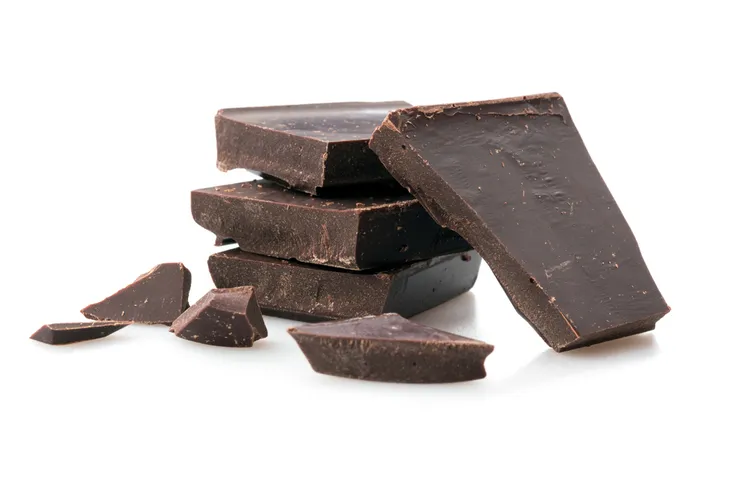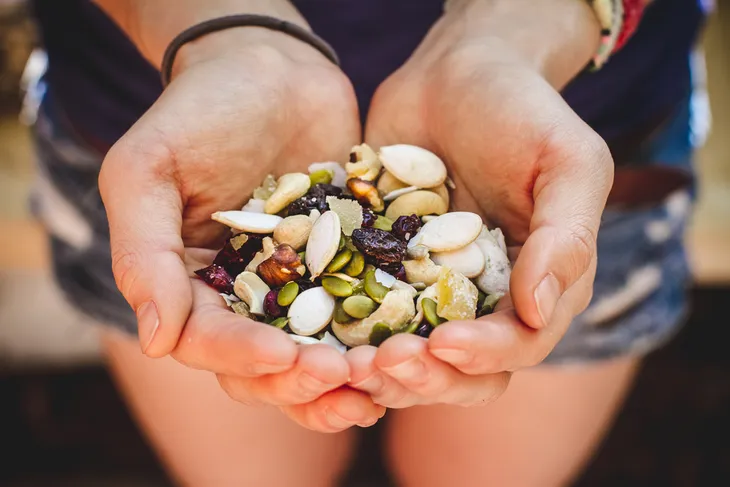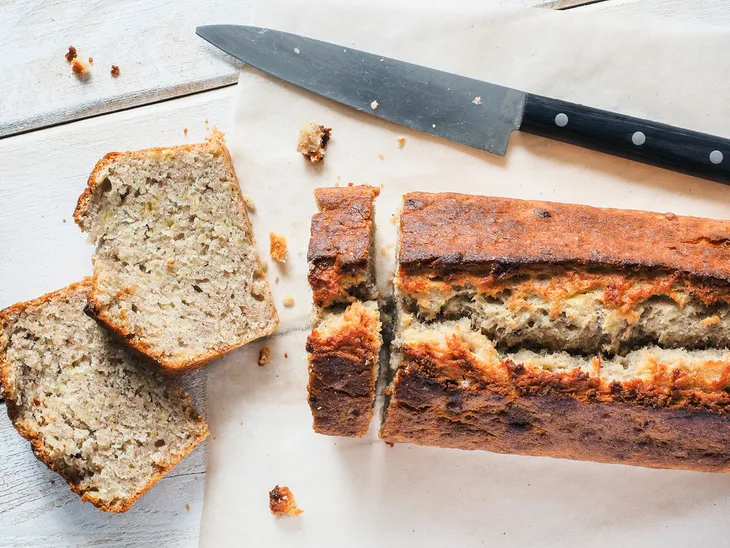We’re all susceptible to it – reaching for those salty chips, or gobbling some sugary candies. While our brains might tell us this is a good idea at the time, the rest of our body definitely doesn’t! Salty snacks can raise blood pressure and eating sugary snacks can cause a higher risk of type 2 diabetes.
What’s more is that these types of snacks just further perpetuate more cravings fuelling a never-ending cycle. That’s because after we’re done snacking, the body releases a hormone that regulates glucose in the blood to keep blood sugar down, leading to us wanting more sugar to rebound. It’s hard to eliminate snacking altogether, so instead consider these healthier alternatives…
Potato Chips vs. Kale Chips
It’s hard to compete with potato chips. They are a staple in American homes, and they come in a huge variety of flavors from dill to barbecue. They’re delicious, crunchy, and… Oh, sorry, getting a bit carried away. The negative side is that potato chips have more than 1,400-mg of sodium per 100-gram serving, according to TheBohemianKitchen.net. That’s approaching the daily limit of 2,300-mg outlined by the FDA.
The source illustrates in a graph that potato chips win for iron and even fiber content, but kale chips are king when it comes to calcium, vitamin C, and especially vitamin A content. Kale chips are also lower in carbs, sugar, and fats. While the source admits it still prefers potato chips (because the kale version is bitter), there are ways to spruce up the flavor of kale chips with some seasoning.
Sweet Potato Fries vs. ‘Normal’ Fries
Still on the topic of potatoes, let’s get the low-down on these two versions of fries. Healthline breaks down all of the nutritional components of both from the freezer section of a grocery store. The conclusion is that regular “French” fries are higher in sodium, but sweet potato fries are actually a bit higher in calories and carbs, notes the source.
However, don’t count sweet potato fries out yet. Sweet potato fries can go toe-to-toe with regular fries when it comes to flavor. Healthline adds they are more “nutrient dense” – particularly when it comes to vitamin A content (French fries have none). It points out that the way the fries are cooked and the portions make a difference, and that restaurant versions boost calorie content significantly because they’re typically deep-fried. You can make this snack a lot healthier by making them from scratch at home and baking them in the oven.
Protein Bars vs. Candy Bars
The “candy bar” or chocolate bar is another snack that’s hard to resist. It’s delicious, it’s simple, and it gets right to the point. However, many of your fave candy bars are loaded with sugar and fats, which is not the most ideal. As an alternative, you can reach for a protein bar instead. You’re probably thinking, “but protein bars taste bland!” However, SpoonUniversity.com has an entire list of protein bars that substitute well for popular brands of chocolate bars.
As examples: the Fit Crunch Bar is designed for Snickers lovers, which deliver as many calories as a meal along with 60-percent of your daily protein requirements, according to the source. Detour bars are touted as a healthier alternative to Milky Way bars, as the “caramel layer is extremely thick and is coated in a low-sugar chocolate,” it adds. Be mindful of the protein bar you reach for as many have even more sugar and calories than a candy bar. Read nutrition food labels to make better choices.
Dark Chocolate vs. Milk Chocolate
Since we’re already on the subject of chocolate, let’s have a closer look at which is better to grab to curb your cravings. There’s no denying the sweet temptation of a milk chocolate bar, especially when it’s coupled with caramel or some other sugary filling. However, “Despite its undeniable sweet taste is it also undeniably bad for you in so many ways. Diabetes and hypertension are just to mention a few,” warns DailyHealthyBody.com.
Instead, reach for dark chocolate instead because it contains iron, magnesium, potassium and other good stuff your body actually needs. Dark chocolate is also rich in antioxidants that have disease-fighting properties (and apparently can help you stay looking younger, according to the source). However, not all dark chocolate is the same: look for those with 70-percent or higher cocoa content, as they have more antioxidants and tend to be lower in sugar, adds Healthline.
Trail Mix vs. Candy
You stare into the cupboard and see a bag of candy, and a bag of trail mix. We’re going to guess that your impulse is to reach for the candy if you’re having a sweet fix craving, but we’re also here to tell you the trail mix is a viable option. According to Stack.com, since trail mix contains nuts, which deliver healthy omega-3 fatty acids, vitamin E, and fiber, it’s likely the better choice nutritionally.
The source notes that dried fruit content in trail mix also delivers many nutritional benefits, including potassium and iron, as well as heart-protecting antioxidants. They’re also tasty. However, the source warns that many trail mixes sneak in candies like M&Ms (and Smarties), which spikes the sugar and saturated fat content. “You do not need Reese’s Cups in your trail mix!” it notes.
Frozen Yogurt vs. Ice Cream
It’s cooling down in some parts of the country, but there are still reasons to crave ice cream. After all, it’s creamy and delicious, and it comes in an unimaginable number of flavors (pickle ice cream, anyone? Okay, maybe not). Enter frozen yogurt as the competitor – it can actually contain more sugar than ice cream, according to DailyBurn.com, but there are advantages such as lower fat content.
Frozen yogurt also typically contains probiotics that can help encourage a healthy gut (but make sure there’s a “Live and Active Cultures” seal on the label, notes the source). It warns against eating a larger portion of frozen yogurt thinking that’s okay, and to avoid piling on extras that can multiply calorie content (it suggests a spoonful of nuts or fruit).
Banana Bread vs. Cake
Ah, cake. It’s delicious and it’s hard to turn it away if there’s some in front of you. But like many foods that are highly satisfying, it’s also high in calories and fat, according to DailyHealthyBody.com. So while a slice here and there is probably okay, making it a regular snack is not a healthy approach.
As an alternative, you can try banana bread, which is also moist and delicious. The source says it offers additional benefits such as protein, fiber, and “healthy fats,” while also helping you feel full more easily (which can help with portion control). However, if you’re making your own banana-nut bread, consider swapping out half of the white flour content for whole wheat, and replace half the oil with applesauce, suggests LiveStrong.
Seltzer vs. Pop
If you’re looking for a refreshing drink, you might crave the cold fizz of soda. In fact, EveryDay Health cites a study that shows 50-percent of adults drink soda on a daily basis, which is actually down quite a bit from a 2003-2004 survey – so that’s good news. The bad news is that drinking pop can lead to health problems including heart disease and stroke, it adds.
Instead of getting your fizz from soda, the site recommends turning to some carbonated seltzer, which doesn’t carry the same health hazards and satisfies the craving. You can also boost the flavor by adding some “no-sugar-added juice” to the seltzer – 1-part juice to 3-parts seltzer, it suggests. Sparkling water is another alternative.
